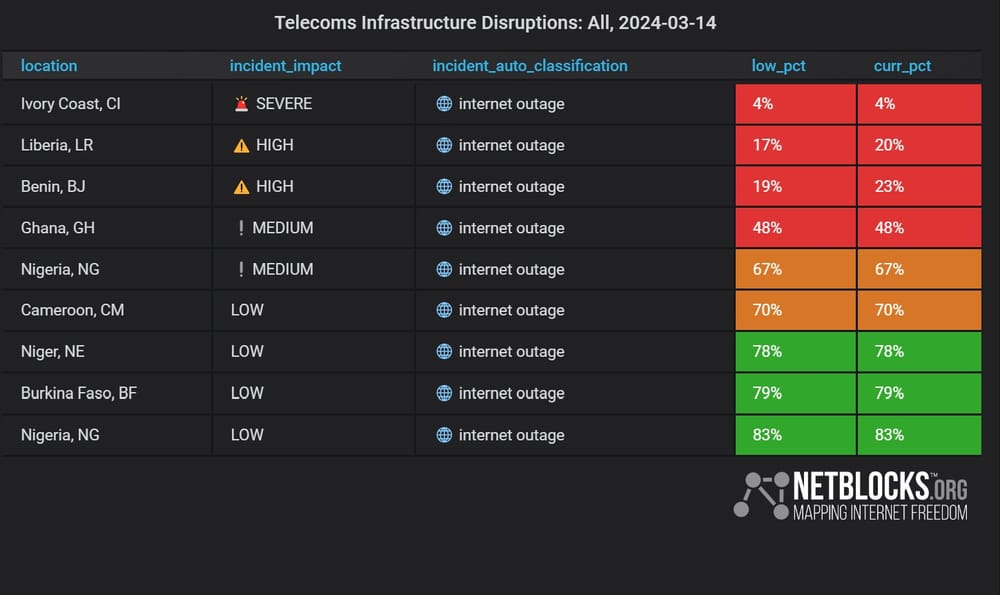On Thursday, a significant wave of internet outages swept across regions of West, East, and Central Africa, causing substantial disruptions in connectivity for millions of users. Major internet service providers, including MainOne and Seacom, have pinpointed the cause to damage sustained by subsea cables, which are crucial for facilitating global internet connectivity. These underwater cables, lying deep on the ocean floor, are the backbone of the internet, carrying vast amounts of data between continents at the speed of light.
The impact of these disruptions has been far-reaching, with countries like Ivory Coast, Liberia, and Benin experiencing severe internet outages. The ripple effect of these outages has also been felt in other nations, including Ghana, Nigeria, and Cameroon, highlighting the interconnected nature of modern communication networks and the dependency of various sectors on stable internet access.

The incident underscores the vulnerability of critical infrastructure to physical damage. Last month, a segment of Seacom’s cable in the Red Sea suffered a breakage, an area already under scrutiny due to its strategic importance for global trade and the increasing unrest due to the Houthi militia’s attacks on ships and personnel. This group, based in Yemen, has been implicated in several incidents, raising concerns over the safety of key maritime routes and infrastructure. Despite accusations, the Houthi leadership has denied any involvement in targeting internet cables, pointing instead to military activities by British and US forces in the region as potential causes for the damage.
In the face of these challenges, internet service providers and telecommunications companies have been quick to respond, rerouting client traffic through alternative network paths to mitigate the impact on end-users. Seacom’s chief digital officer, Prenesh Padayachee, confirmed these measures, emphasizing the industry’s resilience and commitment to maintaining connectivity. Similarly, MTN, a leading telecommunications company in Africa, has employed alternative routes to ensure the continuity of its services.
The consequences of the outages have been widespread, affecting not only personal and business communications but also critical services such as online banking and access to cloud-based applications like those offered by Microsoft. This incident serves as a stark reminder of the essential role that internet infrastructure plays in the global economy and the need for increased investment in redundancy and security measures to protect against future disruptions. As the digital economy continues to expand, ensuring the resilience of this infrastructure becomes paramount for supporting economic growth, innovation, and connectivity across the globe.












